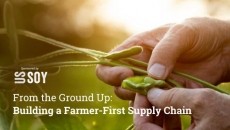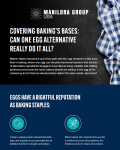Kidfresh co-founder: We're bringing Millennials to the frozen aisles

Chicken nuggets, he says, are not inherently unhealthy, and pizza doesn’t have to be a nutritional disaster, it just depends what recipes and cooking methods you use.
Kidfresh, he says, is simply taking foods that children already recognize and love – cheesy quesadillas, pizza, tater tots, meatballs, spaghetti and chicken nuggets - and creating healthier versions with less fat and sodium, more whole grains and hidden veggies, and a cleaner label.
“It’s not our job to change children’s taste palates," Cohen told FoodNavigator-USA.
"In essence there’s nothing wrong with fish sticks. Ours are made with whole Alaskan Pollock fillets and whole grain breading that incorporates chickpea flour and they’re great. Our mac & cheese has mashed up carrots in the sauce, and our totally rockin tots have cauliflower or yellow squash mixed in with the shredded potato.”
We’re not a premium brand
If you’re making foods for kids, adds Cohen - who recently raised $10m in a Series B financing round led by Monogram Capital, with Emil Capital Partners and AccelFoods also contributing - you have to start from where they are.
And while we all aspire to a Mediterranean-style fantasy where families sit down together every night and everyone eats the same healthy, homemade fare, most parents just want to find something affordable, convenient and nutritious that their kids will actually eat, without being made to feel guilty.
“If kids don’t like it, they won’t eat it, so we start with great taste. Then we can push the envelope on nutrition," said Cohen.
“Yes, we don’t use artificial colors, flavors or preservatives and we use organic where we can, free range chicken and cage free eggs, but at the end of the day, if you want to know about nutrition, you go to the panel on the back and you look at the calories, the fat, the sugar, the sodium, and the [positive] nutrition from the veggies and the proteins. A lot of organic products are very heavy in fat, sugar and sodium, and we say no to that.
“We’re not luxury, we’re not premium, we’re an everyday product for kids. I’d rather have our chicken nuggets with antibiotic-free chicken that delivers 10g of whole grains and hidden cauliflower for $3.49 than an organic premium chicken nugget that costs $5.99.
"We're bringing Millennials to the frozen aisle, and we've shown retailers that Kidfresh is bringing incremental growth to the frozen aisle because we are bringing new people into the category."
The large frozen brands have been slow to innovate in the frozen case
The brand – which started out as a retail concept in 2007 but switched its focus to frozen packaged foods in 2010 - is now in around 9,000 retailers nationwide from Walmart and Kroger, to Target and Whole Foods, he said.
“We still have a lot of room to grow in traditional grocery but we’re also looking at club and drugstores, convenience and foodservice. We're also looking at opportunities beyond frozen as well.
“Where we sit on shelf depends on the retailer, so in some stores we’re next to brands like Earth’s Best, and then in other places we’ll be next to brands like Kids Cuisine by Conagra, but in general the large frozen brands have been slow to innovate.
"They’re putting out five meals for seven bucks or ten bucks, but consumers are moving on and embracing brands like EVOL and Luvo because the consumer is saying I want something better.”
Challenges along the way
While the company has been growing rapidly, it's had to deal with its fair share of challenges in recent years, becoming the target of a false advertising lawsuit in 2016 accusing it of selling "classic junk foods" masquerading as healthy meals, and dealing with two recalls this year over a meat quality issue on its mighty meaty chicken meatballs, and milk - an undeclared allergen - in the breading of selected fishsticks. It has also sued a rival for trademark infringement.
While the the false advertising lawsuit - filed by high profile plaintiff's law firm The Law Office of Jack Fitzgerald PC - came as a surprise and seemed opportunistic given the efforts Cohen had made to control fat and sodium in his products, Cohen said the recalls had made him and his co-founder Giles Deloux even more fanatical about quality.
"With the allergen issue, we worked very closely with the breading manufacturer upstream as well as the fish stick manufacturer on testing and checkpoints, and after the meatball incident ["the chicken used for production showed some gristle and did not conform to our specifications"], we did even more testing around the raw materials and the finished products and looked at things like changing the grinding levels and things like that.
"But every single lot that comes off the production line, it's on hold until Giles or I have tried it ourselves and made sure it's good."
























